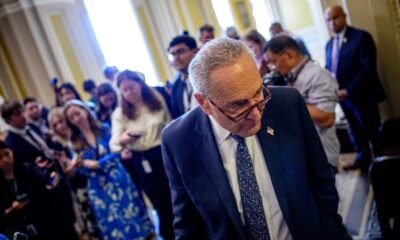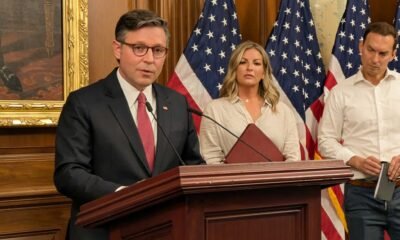arizona
Medicaid: A Vital Safety Net for Arizonans—AZ Reps Urged to Oppose Cuts

For 71 million Americans, including 15 million with disabilities, Medicaid is a vital healthcare lifeline. Recently, the House passed a controversial bill that threatens healthcare access by proposing cuts affecting at least 8 million people and slashing $800 billion from Medicaid funding. Now, the Senate has taken up the bill and made even deeper cuts, despite public backlash against such measures. A Senate vote and a final decision in the House are imminent.
The ACLU of Arizona and Disability Rights Arizona express strong disapproval of this drastic move, which they view as an assault on a support system crucial for many Arizonans. Representatives Schweikert and Ciscomani’s backing of the bill contradicts the interests of nearly 2 million Medicaid enrollees in Arizona, as well as the majority of Americans who advocate for Medicaid programs like the Arizona Health Care Cost Containment System (AHCCCS). The cuts will have widespread ramifications, affecting roughly 700,000 children and 60,000 veterans reliant on AHCCCS.
Instead of addressing constituent concerns, lawmakers have greenlit what could become the largest Medicaid cut in history. This legislation introduces bureaucratic obstacles that will burden Arizonans seeking to retain their health coverage. Enrollees can expect more frequent eligibility checks, stringent work requirements—even for older adults—and higher out-of-pocket costs, risking millions of people losing Medicaid access altogether.
Historical data shows that imposing additional bureaucracy on Medicaid often results in decreased coverage without enhancing employment rates, as evident in states that have attempted similar measures.
While supporters of the bill argue they aim to safeguard vulnerable groups, the reality is the legislation undermines those very populations. In Arizona, anticipated cuts of $2 billion to state hospitals will drive up private insurance rates and create financial strain on Medicaid recipients. Fewer medical providers may lead to reduced services and clinic closures, impacting overall healthcare access for all residents.
The proposed bill also jeopardizes essential services, such as home and community-based supports, that enable individuals with disabilities to live independently. The U.S. Supreme Court’s ruling in Olmstead v. L.C. recognizes this right, but without adequate funding, such rights become meaningless. Essential programs like AHCCCS may have to scale back, leaving the 700,000 disabled individuals on waitlists without the care they need.
Representatives Schweikert and Ciscomani must listen to their constituents and vote against the reconciliation bill if it returns to the House. A failure to do so will lead to the loss of healthcare access for millions of Arizonans.
Victoria López serves as the Executive Director of the ACLU of Arizona, while J.J. Rico is the Chief Executive Officer of Disability Rights Arizona.


















